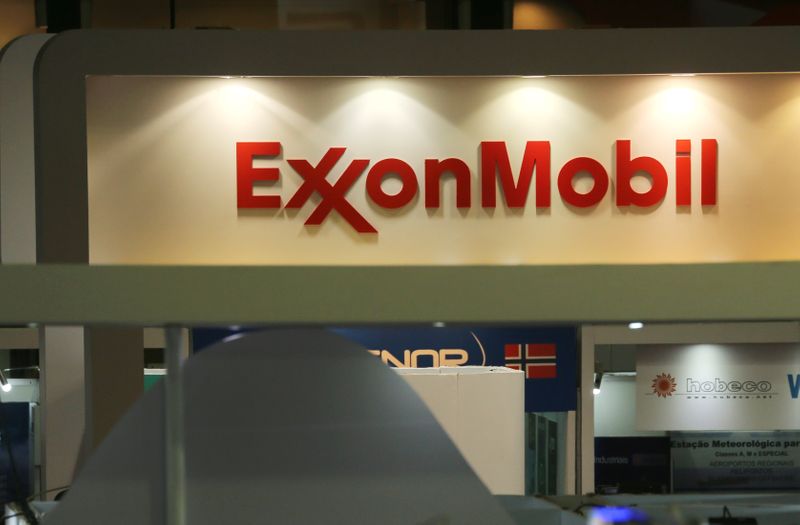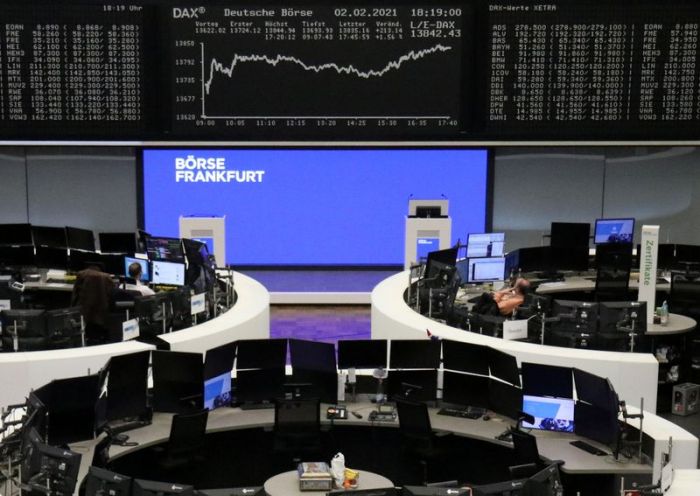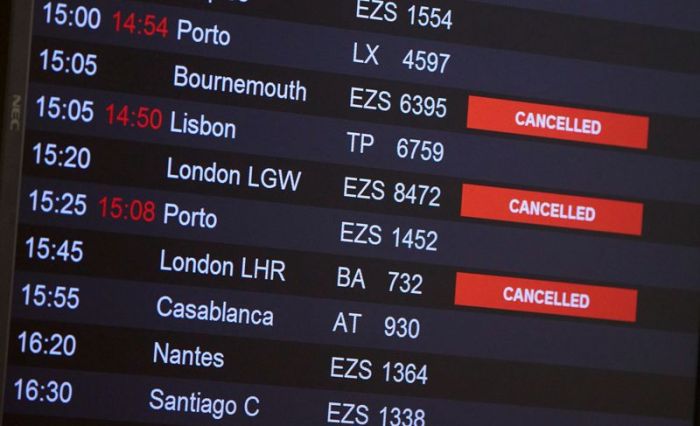HOUSTON (Reuters) -Exxon Mobil Corp on Tuesday posted a historic annual loss after the COVID-19 pandemic hammered energy prices and the company reduced the value of shale gas properties by more than $20 billion.
Exxon last year slashed spending on new projects by nearly a third, outlined plans to cut up to 15% of its workforce while adding $21 billion to its debt to cover spending and restructuring.
The changes come amid “the most challenging market conditions Exxon has ever experienced,” said Chief Executive Darren Woods, and over time will cut costs by $6 billion a year compared to 2019.
The company reported a net annual loss of $22.4 billion for 2020, on the writedown and losses in oil production and refining, compared with a full-year profit of $14.34 billion in 2019.
Exxon declined to comment if it has ever had an annual loss, but the company churned out profits since Exxon merged with Mobil in 1999 and through the 1980s oil bust.
OILMAN JOINS BOARD
The company remains under fire from environmentalists and activist investors pushing for a board overhaul and a strategy that would transition to cleaner fuels. Exxon pushed back against their calls for clean energy expertise, naming the former head of Malaysia’s state oil company, Tan Sri Wan Zulkiflee Wan Ariffin, to its board. It is in discussions with other candidates, the company added.
Other oil majors posted losses for the year as pandemic-related travel restrictions cut fuel demand and triggered huge writedowns. Rivals BP Plc and Chevron Corp posted annual losses.
Royal Dutch Shell Plc reports financial results Thursday.
Exxon posted a net loss of $20.2 billion, or $4.70 per share, in the fourth-quarter ended Dec. 31, compared with a profit of $5.69 billion, or $1.33 per share, a year ago. Excluding the impairment and other charges, the company earned 3 cents per share, beating analysts’ average expectation of a one-cent gain, according to Refinitiv IBES data.
Exxon shares, which have lost a quarter of their value in the past 12 months, rose 1.6% to $45.62 on Tuesday.
“The turnaround story will take some time,” said Biraj Borkhataria, analyst with RBC Capital Markets, noting that the company is not yet covering its dividend and capital spending with cash from operations.
But with oil prices recovering, Exxon can start to cover dividend and begin paying down the $68 billion in debt on its balance sheet, Woods said. Oil is up 11% so far this year, and trading at pre-pandemic levels.
Exxon still has “plenty of wood to chop” but the willingness to cut costs to pay the dividend will play well with investors, said Mark Stoeckle, senior portfolio manager at Adams Funds.
Project spending fell nearly a third last year and this year will near the bottom of the company’s $16 billion to $19 billion forecast, Woods said. Spending will rise to as much as $25 billion from 2022 through 2025, he said.
LOWER OUTPUT IN OIL AND REFINING
Exxon’s oil and gas output was 3.7 million barrels of oil and gas per day in the fourth quarter, down 8% compared with a year earlier.
It projects a doubling of Permian Basin output to 700,000 barrels per day by 2025, down from the million-barrel target it previously had expected to hit by 2024 in the top U.S. shale field, Woods said.
Exploration and production, Exxon’s largest business, lost $18.5 billion in the fourth quarter on the natural gas asset impairments, compared with a profit of $6.1 billion the year prior.
Its chemicals business earned $691 million on better margins in part from lower oil prices, up from a loss of $355 million a year ago. Refining lost $1.2 billion, compared with a profit of $898 million last year, on weak margins and lower output as the pandemic limited global travel.
The writedown lays bare the size of the miscalculation that the company made in 2010 when it paid $30 billion for U.S. shale oil and gas producer XTO Energy.
The move to shake up its board comes as Exxon faces a proxy fight with hedge fund Engine No. 1, which has proposed four candidates and wants the board to include clean-energy experience.
“Exxon Mobil shareholders deserve a board that works proactively to create long-term value, not defensively in the face of deteriorating returns and the threat of losing their seats,” Engine No.1 said in a statement.
On Monday, Exxon said it would invest $3 billion on lower emission solutions through 2025 and that it has created a business that will focus on commercializing its carbon capture technology.
(Reporting by Jennifer Hiller in Houston and Shariq Khan in Bengaluru; Editing by Will Dunham, Sriraj Kalluvila, Barbara Lewis, Susan Fenton and Marguerita Choy)























